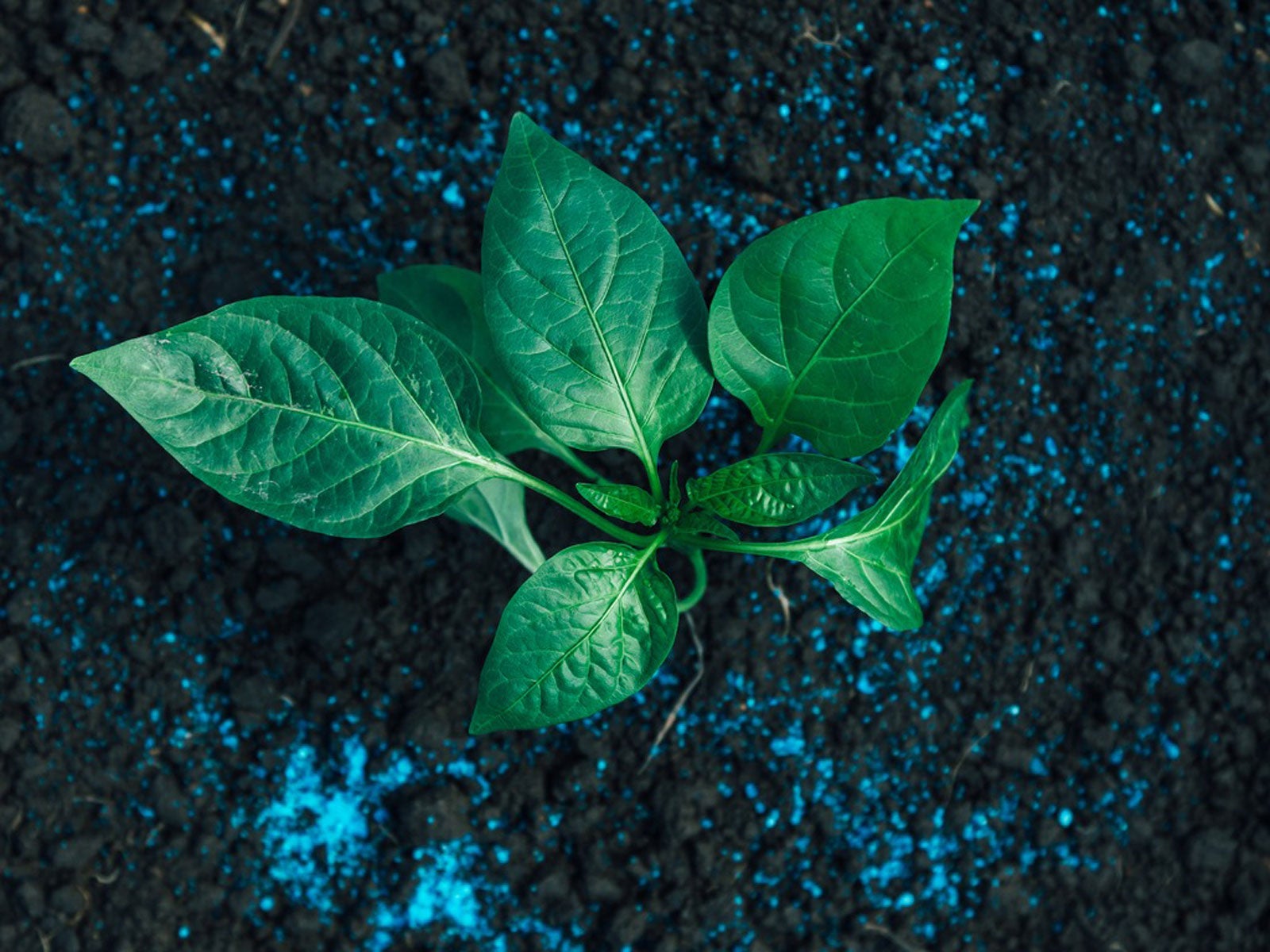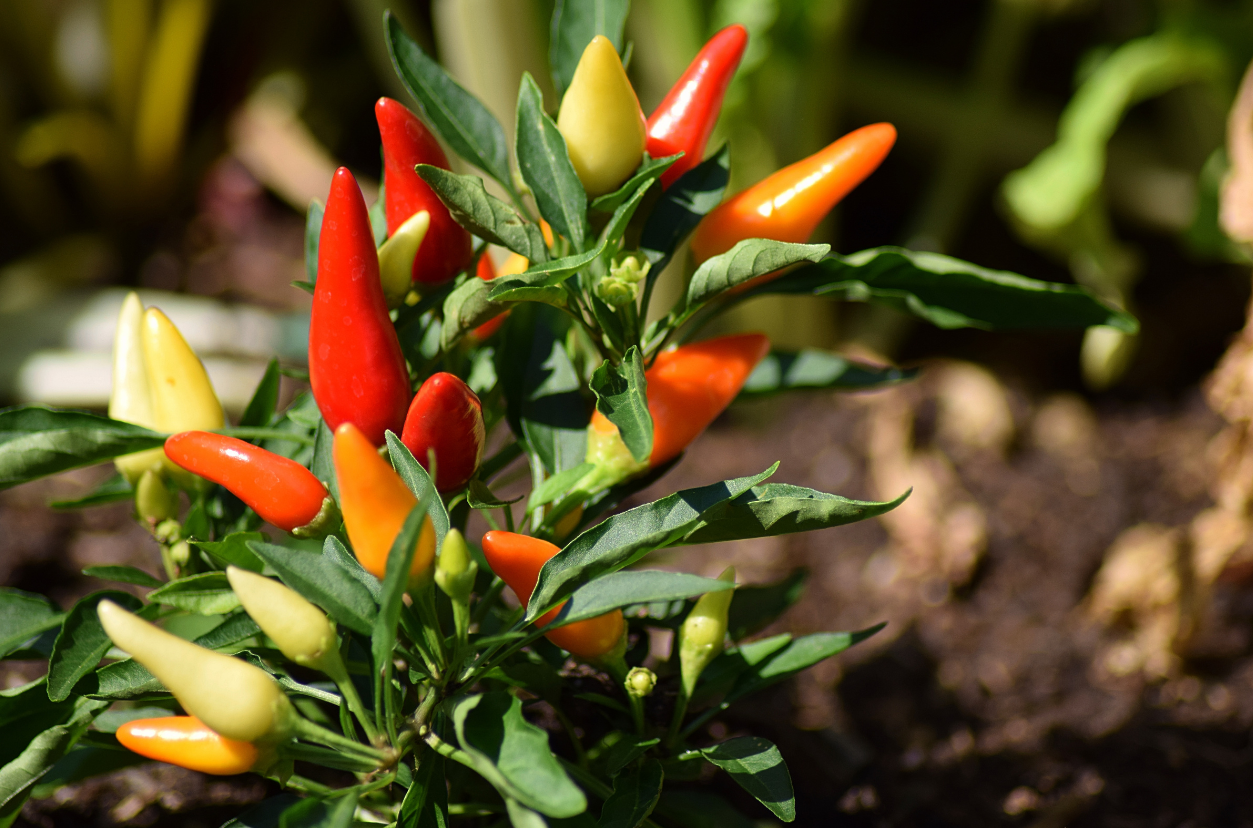Best Fertilizers for Peppers: Make The Most Of Plant Health and Return
Best Fertilizers for Peppers: Make The Most Of Plant Health and Return
Blog Article
The Conveniences and Techniques of Using Plant Foods for Peppers in Your Yard
When it involves growing a successful pepper garden, the role of fertilizers can not be forgotten. The advantages of utilizing fertilizers for peppers expand beyond plain plant growth; they play a critical function in improving fruit production and total plant wellness. Nevertheless, the globe of fertilizers can be frustrating, with numerous choices available, each asserting to be the most effective. Recognizing the details demands of pepper plants and choosing the right plant food can be a game-changer in your gardening journey. By checking out the techniques of appropriate fertilizer application and developing a timetable tailored to your pepper plants, you can unlock their full possibility. Join us as we discover the details of feeding peppers effectively and efficiently, growing and making certain a plentiful harvest yard.
Importance of Fertilizers for Peppers
Plant foods play an important role in ensuring the optimum growth and efficiency of pepper plants in a yard setting. Peppers are heavy feeders, needing a well balanced supply of important nutrients to prosper and create plentiful harvests. The key nutrients required by pepper plants are potassium, nitrogen, and phosphorus. Nitrogen help in leafy growth and general plant vitality, phosphorus supports root advancement and flowering, while potassium adds to fruit development and illness resistance.
When peppers do not have these crucial nutrients, they may display stunted development, yellowing fallen leaves, minimized flowering, and poor fruit collection. By providing the right plant foods in the proper amounts, garden enthusiasts can resolve these shortages and promote healthy plant development. In addition, fertilizers help pepper plants stand up to environmental stressors such as severe temperature levels, pests, and illness, enabling them to concentrate their energy on development and fruit manufacturing.
Selecting the appropriate fertilizer formulation, whether synthetic or organic, and complying with proper application methods are essential aspects in making the most of the advantages of fertilizers for pepper plants in a garden setup. Regular soil screening can likewise assist establish any nutrient discrepancies and guide gardeners in creating a tailored fertilizing strategy customized to the particular demands of their pepper plants.
Choosing the Right Fertilizer
Selecting the ideal fertilizer for pepper plants is vital for guaranteeing their ideal development and productivity in a yard setting. When picking a plant food for peppers, it is necessary to think about the details nutrient requirements of these plants. Peppers are heavy feeders, especially requiring appropriate amounts of nitrogen, potassium, and phosphorus. Consequently, a fertilizer with a well balanced NPK proportion, such as 10-10-10 or 20-20-20, can be appropriate for peppers.

Before applying any type of fertilizer, it is vital to carry out a dirt test to determine the present nutrient levels in the soil. This information can direct you in selecting the right fertilizer and creating a personalized fertilization plan for your pepper plants, advertising healthy growth and plentiful yields.
Application Techniques for Optimum Outcomes
To attain optimal development and efficiency for pepper plants in your garden, what key application methods can be utilized for optimum outcomes? When using fertilizers to pepper plants, it is vital to follow certain techniques to make sure that the nutrients are efficiently soaked up and used by the plants. One important method is to use the fertilizer equally around the base of the plants, ensuring that it is not concentrated in one location. This helps to stop origin burn and enables uniform nutrient uptake.
An additional important application method is to water the plants thoroughly after applying the plant food. This helps to liquify the nutrients and lug them to the roots where they are required for growth. Additionally, it is suggested to apply plant foods throughout the cooler components of the day, such as morning or late night, to avoid dissipation and make the most of absorption.
Furthermore, regularly keeping an eye on the plants for any indications of nutrient deficiency or extra can assist in readjusting the plant food application accordingly. By utilizing these vital application methods, you can make certain that your pepper plants receive the necessary nutrients for healthy growth and plentiful returns.
Plant Food Schedule for Pepper Plants
When should pepper plants be fed to guarantee optimal growth and efficiency in your yard? Establishing a well-structured plant food routine is important for the healthy and balanced growth of pepper plants - best fertilizers for peppers. Peppers have details dietary demands that vary throughout their growth stages

As the pepper plants start flowering, button to a phosphorus-heavy plant food to promote durable blossom and fruit formation. Potassium-rich plant foods should be presented during the fruiting stage to boost fruit high quality and yield.
Throughout the growing season, keep an eye on the plants for any kind of indicators of nutrient shortages and change the fertilizer timetable as necessary. Bear in mind to water the plants deeply after each fertilization to assist in nutrient absorption. By following a constant and well-tailored plant food schedule, you can guarantee strenuous growth and abundant harvests from your pepper plants.

Tips for Feeding Peppers Efficiently
One vital tip is to perform a dirt test before using any type of plant foods to determine the existing nutrient degrees. It is suggested to utilize a well balanced fertilizer with a proportion such as 10-10-10 or 20-20-20 to make certain peppers get a mix of important Website nutrients. Using fertilizers in the right quantity and at the best time is vital.
Final Thought
To conclude, plant foods play an important duty in the development and growth of pepper plants Web Site in your yard. By selecting the ideal fertilizer and using it appropriately, you can ensure your peppers obtain the essential nutrients for optimum growth. best fertilizers for peppers. Following a regular fertilizer routine and applying reliable strategies will certainly aid take full advantage of the benefits of fertilizers for your pepper plants, causing effective and healthy crops
The benefits of making use of plant foods for peppers expand beyond mere plant growth; they play an important role in improving fruit manufacturing and general plant wellness.Plant foods play an essential duty in ensuring the ideal development and efficiency of pepper plants in a garden setting. When picking a fertilizer for peppers, it is essential to think about the specific nutrient needs of these plants. When using plant foods to pepper plants, it is crucial to comply with certain techniques to make sure that the nutrients are properly absorbed and utilized by the plants. Complying with a regular fertilizer schedule and applying efficient techniques will certainly aid maximize the advantages of plant foods for your pepper plants, resulting in effective and healthy crops.
Report this page